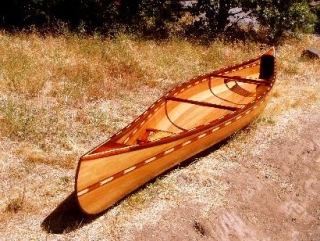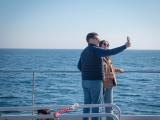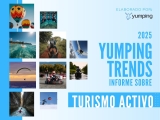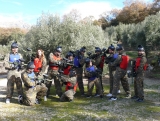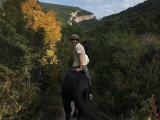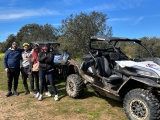
That’s right. Whether in flatwater or slalom, this sport accounted for 4 of those 17 medals (3 golds and 1 bronze). And let’s be honest—that’s enough to make anyone crave a paddle. Hence today’s topic.
Spain is a perfect place for kayaking or canoeing. Maybe that’s why we thrived in Brazil. With vast inland waterways and 8,000 km of coastline, our hydrographic network blends serene beauty with white-knuckle rapids. It’s no easy task to pick the best spots (I’m surely missing a few), but let’s navigate some top destinations to understand those medals up close. Ready to paddle?
RÍO GÁLLEGO
Heading to Aragón, this Pyrenean-born river is one of Spain’s mightiest, especially upstream. Its alternating calm stretches and raging sections—like the Sabiñánigo-to-Murillo de Gállego segment—make it a thrill.

The most popular route spans 12 km (2+ hours), escalating to Grade IV (advanced) at "El Embudo" ("The Funnel")—a rapid only for seasoned paddlers.
But it’s not just about difficulty: the Gállego rewards you with panoramas like "Isla Perejil’s" flat rock.
NOGUERA PALLARESA
Likely Spain’s wildest river. Born in the Val d’Aran, its most technical stretch runs from Refugi de Fornet to Presa de Borén—a gauntlet for experts.
That said, its commercial route covers 54 km (Llavorsí to Figuereta), mixing mid-level rapids with adrenaline bursts like the Llavorsí-to-Rialp section.

Highlights include heart-pounding drops like "El Salt de l’Àngel" ("The Angel’s Jump") and the "El Pastís" rapids.
SELLA
The Sella is ideal for beginners. A classic descent starting at the "Fuente del Infierno" ("Hell’s Spring") in Picos de Europa, it unveils lush forests (willows, oaks, ashes) and wildlife (kingfishers, salmon, trout).

The full route (Cangas de Onís to Llovio) spans 19 km (6 hours), though you can shorten it from Arriondas. Deeper sections (6m) promise pure fun.
DURATÓN
Born in the Sierra de Guadarrama, its peak beauty unfolds in Segovia’s "Hoces del Duratón" Natural Park. Paddle 25 km past canyons, ruins (like San Frutos hermitage), and cliffs teeming with griffon vultures and peregrine falcons.

This serene journey carries a mystical vibe, crowned by golden eagles’ nests. Cap it off with a riverside drink at Presa de las Vencías.
GENIL
Further south, Sierra Nevada births this tempestuous river. It rages toward Granada before calming near the Alhambra.

Post-Granada, the Iznájar Reservoir (Andalusia’s largest) offers respite—briefly. Then comes the "Agujero Negro" ("Black Hole"), a thrilling (but safe) chute. Pro tip: leap off Palenciana’s bridge at the end!
RÍO ULLA
Galicia’s magic shines here. The Ulla mixes rapids and calm stretches like "La Ruta de los Cruceiros", passing mill dams and dense foliage.
Choose between routes: Herbón-to-Rianxo (12 km, 4 hours) or Vedra-to-Puente de Sarandón (8 km, 2.5 hours). Don’t miss "El Lapido"—a rapid with a pyramid-shaped rock creating a 1m drop. Daredevils can tackle Grade V "El Portugués".

CUEVA D’EN GISPERT
A contemplative gem in Girona. Launch from Tamariu for a 3+ hour paddle through the Costa Brava’s largest cave (150m deep). The central chamber’s "Taula" island—complete with seating—is unforgettable.

Convinced? Grab your oars and chase the fun!




